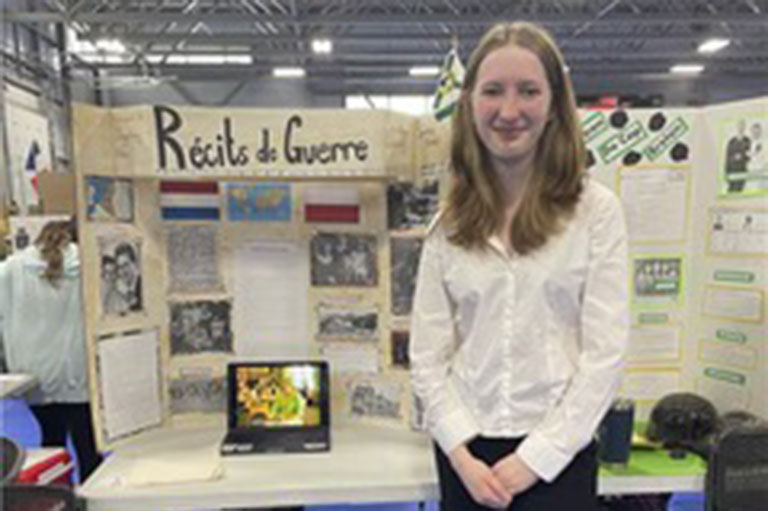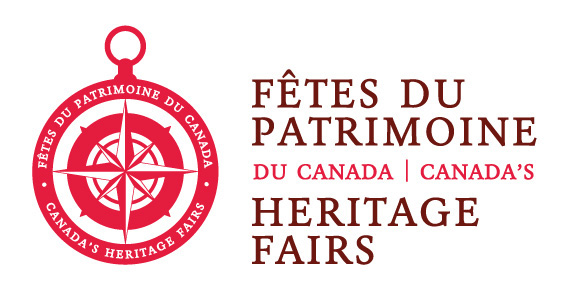Joanna D.

Récits de guerre: L’histoire de Ingeborg Alblas et Zdzislaw Zelazny
Joanna D.
Anglophone West School District Regional Heritage Fair
Fredericton, NB
The Zelazny family lived in the East of Poland when Nazi Germany and the Soviet Union invaded in 1939, starting the Second World War. My great-great grandfather, Franscizek Zelazny, was in the Polish army reserves at the time, and was called to service to fight against the Soviet powers coming from the East. The Poles were soon overcome and Franscizek was taken as a prisoner of war, and assassinated in the Katyn massacre. His children and wife were brought to a work camp in Kazakhstan, where they stayed until the Soviets joined the Allies in the June of 1941. At this point, my great-grandfather, Zdzislaw Zelazny, wanted to join the Soviets to fight against Nazi Germany. But, the Soviets didn’t have enough food to feed the thousands of Poles who wanted to join their army, so the Poles circled Africa to join the Great British army as the First Polish Armoured Division. They helped to liberate France and Belgium. Meanwhile, my great-grandmother, Ingeborg’s, family was living in the Netherlands, and were part of the Dutch resistance. They disguised Jews on their farm as servants, and were suspect to the Germans, but were never discovered. After the war, Zdzislaw moved to the Netherlands, because his home had been destroyed in the fighting, where he was introduced to Ingeborg. The two fell in love and moved to Canada to pursue Zdzislaw’s career.
What sources and evidence did you consult for your project? What different perspectives did they provide on your topic?
I’ve been hearing these stories my entire life, but I knew that there was no way they were all true. I made it my goal to find the most direct, to-the-point sources I could: the people who knew my great-grandparents and their families, and writing that my Opa Zdzislaw (Frank) did himself. I emailed my tante (great-great aunt) Muriel, Inge’s sister, and she told me the story the way she remembered it. Although she was born after the war, she grew up hearing these stories directly from the people who lived them, and knows the details that no one else does. She directed me to a YouTube video of my tante Sonya doing an interview in the early 2000s, shortly before she passed away. My grandfather helped me get in contact relatives from Poland to answer questions about Opa’s story, and again, the things I’d heard as a child didn’t always match up exactly.
What is the historical significance of your topic?
Every family has an origin story. We all come from somewhere, and the war is one of the reasons I’m here today. These stories, although tragic, brought my great-grandparents to Canada, and if my great-great grandfather hadn’t been assassinated, I would never have been born. History is a series of events that leads to where we are today, and if you alter any link, the world would not be the same.
Why did you choose this topic?
The people in my family have been researching our war stories for decades, but in recent years, we’ve become worried that the people who actually remember won’t live forever. I wanted to document our war stories in one place, so that when my great-great tante Muriel and my great-oma Inge aren’t around, we still can keep in touch with our history and how we got here. It was especially important for me to shed a light on my Oma’s story, because my family’s research is almost completely about my Opa Zdzislaw/Frank.

